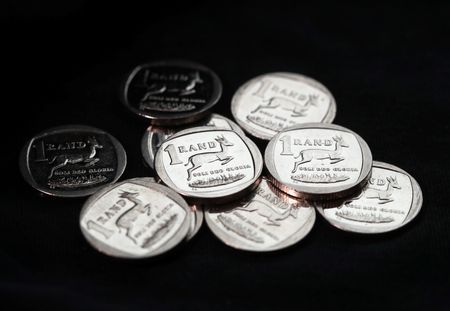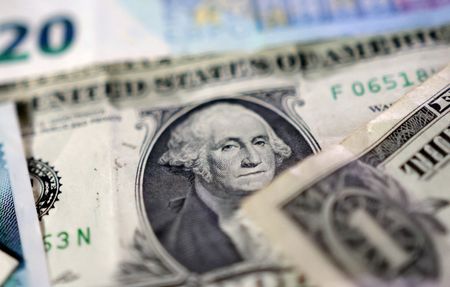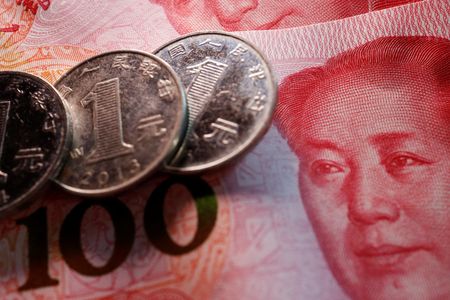By Katya Golubkova and Siyi Liu
TOKYO/SINGAPORE (Reuters) -Oil prices extended gains on Thursday, bolstered by signs of strong demand in the U.S., with uncertainty over efforts to end the war in Ukraine also lending support.
Brent crude futures hit a two-week high in early trade and were up 41 cents, or 0.61%, to $67.25 a barrel at 0637 GMT. U.S. West Texas Intermediate (WTI) crude futures rose 45 cents, or 0.72%, to $63.16 a barrel.
Both contracts climbed over 1% in the prior session.
U.S. crude inventories fell by 6 million barrels last week to 420.7 million barrels, the U.S. Energy Information Administration said on Wednesday, against expectations in a Reuters poll for a 1.8 million-barrel draw. [EIA/S]
Gasoline stocks dropped by 2.7 million barrels, versus expectations for a 915,000-barrel draw, the EIA said, indicating steady driving demand during the summer travel season. That was also seen in a jump in the four-week average for jet fuel consumption to its highest since 2019.
“Crude oil prices rebounded as signs of strong demand in the U.S. boosted sentiment,” Daniel Hynes, senior commodity strategist at ANZ, said in a note on Thursday.
Hynes cautioned, though, that some “bearish sentiment remains evident as traders continue to monitor negotiations to end Russia’s war against Ukraine.”
Traders and analysts expect oil prices to fall once a peace deal is reached, but any continued lack of concrete progress in negotiations could underpin the market.
As U.S. and European military planners began exploring post-conflict security guarantees for Ukraine, Russia said on Wednesday that attempts to resolve security issues without Moscow’s participation were a “road to nowhere”.
The drawn-out efforts to secure peace in Ukraine mean Western sanctions on Russian oil supply remain in place, and that the possibility of tougher sanctions and more tariffs on Russian oil buyers still hangs over the market.
Russia, meanwhile, remains adamant it will keep providing crude to willing buyers, with Russian diplomats in India saying the country expects to continue supplying oil to India despite warnings from the United States.
U.S. President Donald Trump has announced an additional tariff of 25% on Indian goods from August 27 because of their Russian crude purchases. The European Union has also sanctioned Indian private refiner Nayara Energy, which is backed by Russian oil company Rosneft.
Indian refiners initially backed off buying Russian oil but company officials at state-run Indian Oil and Bharat Petroleum have bought Russian crude for September and October delivery, resuming purchases after discounts widened.
(Reporting by Katya Golubkova in Tokyo and Siyi Liu in Singapore; Editing by Tom Hogue and Stephen Coates)











